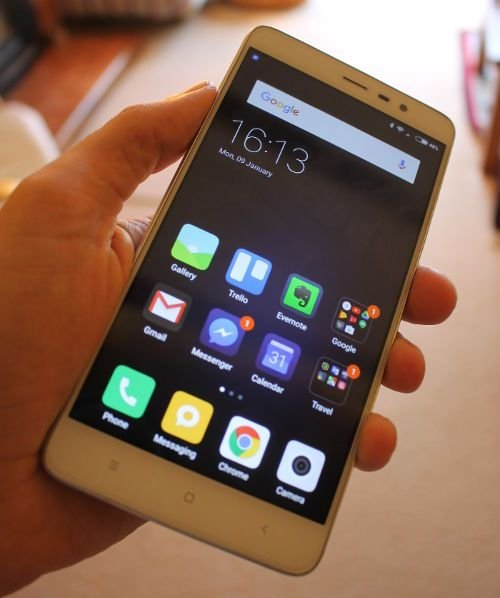If you're on a tight budget and already own a decent and functional phone, don’t replace it just because you’re going on an adventure. As long as it is not locked to a particular phone network and can run Google Maps, you’re good to go. I've upgraded to the very reasonably priced Xiaomi Redmi Note 3 Pro - it's old enough to have significantly dropped in price, but new enough to still be amazing. Great camera and battery life.

A key consideration is battery life. It needs to be capable of surviving a full day as you’ll often travel all day and then need to use it to find your hotel (not to mention kill boredom on the way there). The battery should be 3000 mAh or larger.
If your phone has poor battery life, put it on flight mode at the start of the bus trip and leave it there until you really need internet. You should be able to double or triple the time you have left before your phone abandons you and you're left to fend for yourself. Luckily you can still use GPS to plot your journey’s progress while in flight mode.
Tip: The map will make a lot more sense if you’ve scrolled the map over the entire route while on Wifi the night before. That way Google Maps will have cached the files it needs to display your journey so no internet connection is needed. While you’re at it, go to your destination and pan around a bit, at a few different zoom levels.
Battery life aside, anything with at least 1GB (ideally 2GB) of RAM and 16 GB of storage will be enough.
Having dual sim card slots will be handy if you want to keep your home country sim card plugged in. The two sim cards can make two factor authentication or other types of verification possible that online services sometimes need to do via SMS.
If the shop you’re buying from lacks detailed technical information, compare phone specifications by looking them up on gsmarena.com. There’s a confusing array of information about each phone, but if you focus on RAM, storage and battery size it’s manageable.
I'd suggest not buying the latest and greatest phone because the chances of losing or breaking it is higher than normal. Another bad thing about fancy phones is that carrying around a device that has worth of what local people make in a year is incredibly tempting. Waving around the latest iPhone is going to attract attention (and make it harder to bargain for a good price). SEA is very safe overall, but grabbing phones out of people’s hands and running off into the crowd is not uncommon.